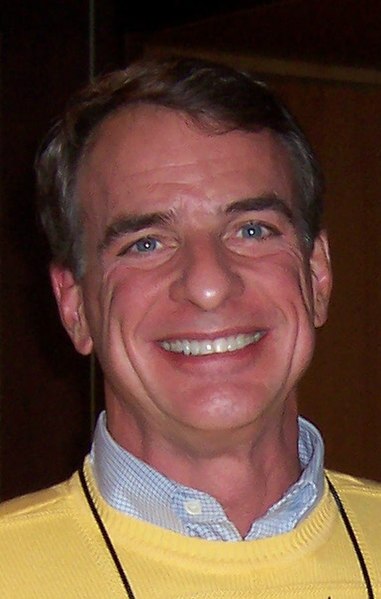 Recently, as part of his much publicized “Reasonable Faith Tour”, William Lane Craig graced the University of London Union. His talk, entitled “Can we be good without God?”, was brought to us, so his banners gleefully informed, by BeThinking.org and the University and Colleges Christian Fellowship (U.C.C.F). Professor Craig has certainly received a high praise over the past year, with Sam Harris describing him as “the one Christian apologist who seems to have put the fear of God into many of my fellow atheists”, and has been described by various people as the foremost christian apologist in the world.
Recently, as part of his much publicized “Reasonable Faith Tour”, William Lane Craig graced the University of London Union. His talk, entitled “Can we be good without God?”, was brought to us, so his banners gleefully informed, by BeThinking.org and the University and Colleges Christian Fellowship (U.C.C.F). Professor Craig has certainly received a high praise over the past year, with Sam Harris describing him as “the one Christian apologist who seems to have put the fear of God into many of my fellow atheists”, and has been described by various people as the foremost christian apologist in the world.From the offset, Professor Craig was careful to state exactly what he meant to establish over the course of the talk. It was not, he was quick to state, about whether those without religion could lead moral lives, which he made certain to emphasise they could. It was about whether the entire idea of “good” has any basis without a God. He stated that there are three answers to the question of morality; Theism, which grounds morality in God; Humanism, which grounds good in humanity; and Nihilism, which claims that there is no grounding for morality, and that morality is illusory.
From here, he turned to the question of whether morality is objective, or subjective. If God exists, he claimed, there is an objective morality, decided by God. If He does not exist, there is only a subjective “moral fashion”. Addressing the Euthyphro Dilemma (that is, the question of “Is what is morally good commanded by God because it is morally good, or is it morally good because it is commanded by God?”), the Professor asserts that the dilemma is a false dichotomy, and that God is the very definition for good. God, he claimed, underwrites moral responsibility, because it is His expression of His character and goodness. The choices of mankind, he observed, are acted out in a manner that appears to be infused with objective morality. He ignored the fact that this appearance does not mean that it is the case that the choices of mankind in fact are infused with objective morality.
He proceeded to address the idea of morality as a product of evolution. This, he said, would make morality simply a survival aid, and nothing more. He elaborated that “If men were reared as hive bees, our females would find it moral to kill their brothers, and mothers their daughters”. This, he then said, would create “objective worthlessness”, without really providing a justification for such claims. In a sudden leap, we were looking at dualism, which, Craig claimed, if untrue would mean that determinism would reign and morality as a concept would break down. He doesn't give any argument for dualism other than that it is preferable to not find ourselves in a deterministic universe. This plea to the more philosophically pleasing option would become an undertone in his arguments from this point in. If morality were subjective, rapists would simply be akin to a moral “Lady Gaga...out of step with 'moral fashion'”, claimed the Professor, and then again return to reinforce the idea that atheists may live moral lives, but only if God exists, as God defines what is moral.
Now came an incredible claim on behalf of the Professor. Subjective ethics, he claimed, led us previously, and could lead us again, to the Holocaust. If naturalism is correct, the world is effectively equitable to Aushwitz, and there could be no moral objections to such actions, if there was no God to underwrite the objections. “If there is no immortality, everything is permitted” he asserted, without giving an justification for such a claim. Morality would purely exist out of self interest.
In conclusion, Professor Craig boiled down his argument as follows; if there is a God, objective morality exists; if there is no God, we are left to nihilism. He felt he had dispelled humanism sufficiently, it seems, to have wiped it from his final consideration. A disappointing performance for a man who it is said is the foremost Christian apologist in the world, and certainly not up to the high praise of Sam Harris.
Jacob Tierney
University College London











